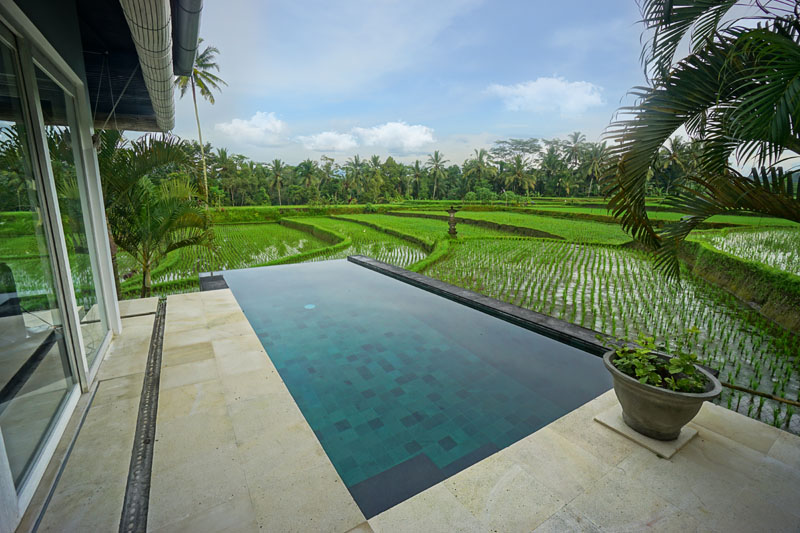Dont Pee in the Pool
Dont Pee in the Pool
02 July 2017

So … pool smell.
Yes, pool smell. Most people would say that swimming pools smell like chlorine. In a recent survey, three-quarters of respondents pegged the chemical smell of pool water as a sign of too much chlorine.
So that smell indicates a super-clean pool?
Actually, nope, it doesnt. That smell is not chlorine.
Wait, what is it then?
That smell actually results when chlorine reacts with something in your pool. What you are smelling are chemicals called chloramines, particularly one called trichloramine. They are formed when the chlorine disinfectants in a pool react with nitrogen-based compounds in swimmers sweat, urine, hair, or skin.
Trichloramine is the most volatile of the chloramines, which means that its best at moving from a liquid to a gas, which makes it easier for your nose to smell.
Chlorine itself does have a smell, and it is similar to what you are used to whiffing at the pool (or in bleach), says Ernest Blatchley, a civil and environmental engineer at Purdue University. But the concentration of chlorine in a pool is low enough that you are probably not going to smell it—until it starts mixing with people sweat or pee to produce chloramines.
Thats kind of gross, but isnt this what the chlorine is there for?
Well, not exactly. Chlorine is the pool disinfectant of choice because its great at killing more serious germs. Chlorine disinfectants can quickly disarm bacteria and viruses, preventing waterborne illnesses such as cholera, as well as less dramatic maladies like swimmers ear. So thats all great.
Unfortunately, it doesnt work on everything—there are some largely chlorine-resistant protozoans, such as Giardia (the intestinal parasite that causes backpackers disease) and diarrhea-causing Cryptosporidium, one of the most common causes of waterborne disease. The risk of catching these from a swimming pool is relatively low, however, and most other pathogens are wiped out by chlorine within an hour.
Most people would say that swimming pools smell like chlorine.
OK, so I know that these chloramines smell, but are they actually a problem?
They might be. In the short term, chloramines are just an annoyance. But some people are more sensitive than others, and these chemicals can make them hack and cough, may give them a rash, or spark a burning feeling in their eyes (another thing we mistake for an effect of chlorine itself). There might also be a connection between long-term chloramine exposure and asthma, though scientists havent proven exactly if or how one causes the other yet.
Outside, wind can sweep gaseous trichloramine away, which limits its impact. “In an indoor pool you dont have that luxury,” Blatchley says, so the compounds can build up and be more irritating. (This is why indoor pools so frequently encourage, or demand, swimmers to shower prior to entry.)
Additionally, aside from irritating your eyes and skin, chloramines are a nuisance because they hog chlorine that would otherwise be keeping disease-causing microbes in check. Or, as famed microbiologist Charles Gerba told the Atlanticin 1997 about family friendly pools—“The chlorine goes so fast with all the kids whizzing in there.”*
What am I supposed to do—stop using chlorine?
Oh, definitely not. Using chlorine is the way to go for pool cleanliness. Please keep using it. But stop thinking that a chemical-smelling pool is the sign of a clean pool.
How much chlorine should I use?
The Centers for Disease Control and Prevention recommends a chlorine concentration of at least 1 milligram per liter of water for pools, and triple that for hot tubs. And then, if your pool smells extra chlorine-y, add a little more. This counterintuitive action should get rid of the chloramines and stop them from forming.
Should I not swim in other people very chloramine-y smelling pools?
People vary a lot in how sensitive they are to both the smell and the irritating effects of chloramine. Because of this, there is no set amount of smelliness that means you should avoid a pool. Better to be protected from cholera and the like, to be honest.
What else can I do to stop chloramines from forming?
Here is where there is sound advice: Shower before you swim. Also, refrain from peeing in the pool. You cant really help the fact that some chloramines will be created from your hair and skin, but not peeing in the pool is an excellent way to limit their existence.
I thought Michael Phelps said its OK to pee in the pool though …
Still no. Its true that Michael Phelps and Ryan Lochte have admitted to peeing in the pool. Phelps even told the Wall Street Journal that “its kind of a normal thing to do for swimmers. … Chlorine kills it so its not bad.”
He is right that if the urine has bacteria (it usually doesnt) the chlorine will kill it. But he is wrong that this is what the chlorine is there to do. Plus, when uric acid and chlorine meet, they dont only make trichloramine. They also form a toxic gas called cyanogen chloride, which can damage the heart, lungs and nervous system. To be fair, it would take a lot of urine mixed with a lot of chlorine to make enough of this to do serious harm, which is likely how Phelps and Lochte have gotten away with it for so long. But they are also competing for Olympic medals, so unless you have an equally valid excuse, its really just better to get out and pee elsewhere.
Plus, its just good manners.
Text By. Kate Baggaley
Article source : http://www.slate.com/articles/health_and_science/science/2016/05/how_to_maintain_a_clean_pool_this_summer.html

So … pool smell.
Yes, pool smell. Most people would say that swimming pools smell like chlorine. In a recent survey, three-quarters of respondents pegged the chemical smell of pool water as a sign of too much chlorine.
So that smell indicates a super-clean pool?
Actually, nope, it doesnt. That smell is not chlorine.
Wait, what is it then?
That smell actually results when chlorine reacts with something in your pool. What you are smelling are chemicals called chloramines, particularly one called trichloramine. They are formed when the chlorine disinfectants in a pool react with nitrogen-based compounds in swimmers sweat, urine, hair, or skin.
Trichloramine is the most volatile of the chloramines, which means that its best at moving from a liquid to a gas, which makes it easier for your nose to smell.
Chlorine itself does have a smell, and it is similar to what you are used to whiffing at the pool (or in bleach), says Ernest Blatchley, a civil and environmental engineer at Purdue University. But the concentration of chlorine in a pool is low enough that you are probably not going to smell it—until it starts mixing with people sweat or pee to produce chloramines.
Thats kind of gross, but isnt this what the chlorine is there for?
Well, not exactly. Chlorine is the pool disinfectant of choice because its great at killing more serious germs. Chlorine disinfectants can quickly disarm bacteria and viruses, preventing waterborne illnesses such as cholera, as well as less dramatic maladies like swimmers ear. So thats all great.
Unfortunately, it doesnt work on everything—there are some largely chlorine-resistant protozoans, such as Giardia (the intestinal parasite that causes backpackers disease) and diarrhea-causing Cryptosporidium, one of the most common causes of waterborne disease. The risk of catching these from a swimming pool is relatively low, however, and most other pathogens are wiped out by chlorine within an hour.
Most people would say that swimming pools smell like chlorine.
OK, so I know that these chloramines smell, but are they actually a problem?
They might be. In the short term, chloramines are just an annoyance. But some people are more sensitive than others, and these chemicals can make them hack and cough, may give them a rash, or spark a burning feeling in their eyes (another thing we mistake for an effect of chlorine itself). There might also be a connection between long-term chloramine exposure and asthma, though scientists havent proven exactly if or how one causes the other yet.
Outside, wind can sweep gaseous trichloramine away, which limits its impact. “In an indoor pool you dont have that luxury,” Blatchley says, so the compounds can build up and be more irritating. (This is why indoor pools so frequently encourage, or demand, swimmers to shower prior to entry.)
Additionally, aside from irritating your eyes and skin, chloramines are a nuisance because they hog chlorine that would otherwise be keeping disease-causing microbes in check. Or, as famed microbiologist Charles Gerba told the Atlanticin 1997 about family friendly pools—“The chlorine goes so fast with all the kids whizzing in there.”*
What am I supposed to do—stop using chlorine?
Oh, definitely not. Using chlorine is the way to go for pool cleanliness. Please keep using it. But stop thinking that a chemical-smelling pool is the sign of a clean pool.
How much chlorine should I use?
The Centers for Disease Control and Prevention recommends a chlorine concentration of at least 1 milligram per liter of water for pools, and triple that for hot tubs. And then, if your pool smells extra chlorine-y, add a little more. This counterintuitive action should get rid of the chloramines and stop them from forming.
Should I not swim in other people very chloramine-y smelling pools?
People vary a lot in how sensitive they are to both the smell and the irritating effects of chloramine. Because of this, there is no set amount of smelliness that means you should avoid a pool. Better to be protected from cholera and the like, to be honest.
What else can I do to stop chloramines from forming?
Here is where there is sound advice: Shower before you swim. Also, refrain from peeing in the pool. You cant really help the fact that some chloramines will be created from your hair and skin, but not peeing in the pool is an excellent way to limit their existence.
I thought Michael Phelps said its OK to pee in the pool though …
Still no. Its true that Michael Phelps and Ryan Lochte have admitted to peeing in the pool. Phelps even told the Wall Street Journal that “its kind of a normal thing to do for swimmers. … Chlorine kills it so its not bad.”
He is right that if the urine has bacteria (it usually doesnt) the chlorine will kill it. But he is wrong that this is what the chlorine is there to do. Plus, when uric acid and chlorine meet, they dont only make trichloramine. They also form a toxic gas called cyanogen chloride, which can damage the heart, lungs and nervous system. To be fair, it would take a lot of urine mixed with a lot of chlorine to make enough of this to do serious harm, which is likely how Phelps and Lochte have gotten away with it for so long. But they are also competing for Olympic medals, so unless you have an equally valid excuse, its really just better to get out and pee elsewhere.
Plus, its just good manners.
Text By. Kate Baggaley
Article source : http://www.slate.com/articles/health_and_science/science/2016/05/how_to_maintain_a_clean_pool_this_summer.html

